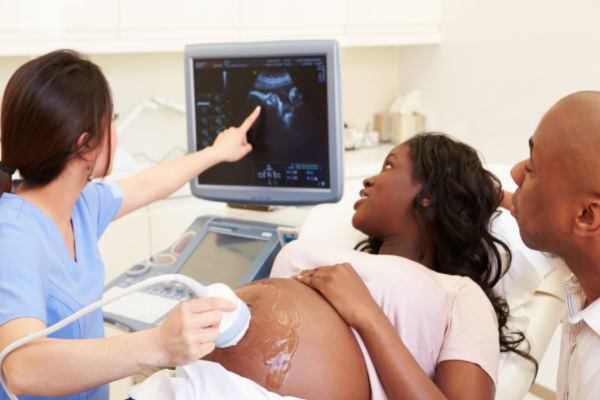As part of its goal to bring artificial intelligence into the health community and showcase its feasibility, Google has developed three new projects in a partnership with Northwestern Memorial Hospital. One of the most promising is using AI to make ultrasounds more accessible—a development Google claims would cut maternal mortality rate in half. In the case of maternal mortality, this means creating a software that can record scans from an ultrasound wand as it glides over a pregnant woman’s stomach, and then analyze those images for potential fetal abnormalities or other signals that something is wrong.
Globally, the maternal mortality rate is 152 deaths per 100,000 births, according to the Gates Foundation, and a 2016 National Vital Statistics report found that 15% of women in the U.S. who gave birth received inadequate prenatal care. The WHO recommends women have at least an ultrasound before 24 weeks gestation. Ultrasound imaging requires fairly high level of expertise and requires a technician or nurse to make an initial assessment, before handing it off to a doctor. Google is suggesting that its technology could provide the technical expertise instead.
“The idea is that we think we can actually help a relatively untrained operator get some of the basics,” says Greg Corrado, senior research director at Google. Through Northwestern, its artificial intelligence will review ultrasounds for 5,000 patients.
All three of Google’s new projects highlight how the company’s strength, organizing information, can play a role in health care. Its other two initiatives center on developing software that turn mobile phones into health tools. The first, an extension of Google’s past work using artificial intelligence to detect diabetic retinopathy from specialty retinal scans, uses a cellphone camera to take a picture of a person’s eye from which it can detect signs of diabetic retinopathy. The third project revolves around software that can turn a smartphone into a stethoscope.
All of these ideas seek to position Google at the forefront of both artificial intelligence in healthcare and the future of health at home. Whether these inventions will really deliver on that promise is up for debate. According to Fast Company, in general, researchers have only recently started to bring artificial intelligence to healthcare.
—
Photo Credit: Monkey Business Images / Shutterstock.com
